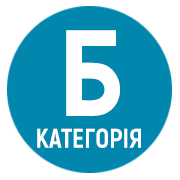COMPARATIVE ANALYSIS OF THE ACTIVITIES OF THE PROSECUTOR’S OFFICE OF UKRAINE AND THE PROSECUTOR’S OFFICE OF THE REPUBLIC OF AZERBAIJAN
DOI:
https://doi.org/10.32689/2522-4603-2019-02/58-74-78Abstract
The article provides a brief comparative analysis of the activities of the Prosecutor’s Office of Ukraine and the Republic of Azerbaijan. It is established that most of the functions and tasks of the prosecutor’s office, which are defined in the legislation and the constitutions of the republics, coincide, but there are some aspects that can affect the efficiency of the prosecutor’s office of Ukraine, if they are changed in the national legislation. The Prosecutor’s Office of the Republic of Azerbaijan independently conducts investigative actions, initiates cases and investigates them, and this is enshrined at the legislative level. In Ukraine, the prosecutor’s office also conducts investigative actions and investigates cases, but at the same time the legislation does not provide for the functions of investigating cases by prosecutors. Moreover, the transitional provisions of the Constitution of Ukraine stipulate that the prosecutor’s office should be deprived of investigative functions.
Another problem which is not defined in the legislation of Ukraine but defined in the legislation of the Republic of Azerbaijan is the problem of management of pre-trial investigation. In the Republic of Azerbaijan, prosecutors conduct pre-trial investigations, and there is no official consolidation of such leadership in Ukraine. Moreover, when conducting the pre-trial investigation, the prosecutor more clearly manages the situation and can more carefully prepare the conviction he pronounces in court.
There is also a difference in the structure of the prosecutor’s office in Ukraine and in the Republic of Azerbaijan. In the Republic of Azerbaijan, which is involved in a military conflict with Armenia, military prosecutors’ offices are isolated and working. In Ukraine, which is waging war with the Russian Federation, there is no legislative definition of military prosecutors, but they are working and performing their functions. Therefore, there is a need for legislative consolidation of the activities of the military prosecutor’s offices.
As a result of the study, proposals were made to amend the legislation.
References
Рустамзаде А. Деятельность судебно-правового совета Азербайджанской респу- блики и высшего совета юстиции в Украине как важный объект реформирования // Наук. зап. ін-ту законодавства Верховної Ради України. 2015. № 6. С. 148–155.
Рустамзаде А. Правовые принципы организации и деятельности органов судей- ского самоуправления в Азербайджанской республике // Юрид. вісник. Повітря- не і космічне право. 2013. № 1. С. 50–55.
Тагієв М. Порівняння функцій прокуратури України та Азербайджанської респу- бліки // Матеріали IV міжнародної науково-практичної конференції “Розвиток української держави в умовах активізації євроінтеграційних процесів”. Київ. 15 квітня 2019 р.
Про прокуратуру: Закон України від 14 жовтня 2014 р. № 1697-VII (офіц. текст). К.: Паливода А. В., 2014. 112 с.
Конституція України // Інформаційно-довідковий сайт “Україна”. URL: http://proukraine.net.ua/?page_id=63
О прокуратуре: Закон Азербайджанськой Республики от 7 декабря 1999 г. № 767- IГ // Опубликован в газете “Азербайджан” (30 декабря 1999 г., № 299).
Про прокуратуру: Закон України від 5 листопада 1991 р. № 1789-XII // Відомості Верховної Ради України. 1991. № 53. Ст. 793.
Конституция Азербайджанськой Республики // Сайт: Государственное агентство гражданской авиации. Министерство транспорта, связи и высо- ких технологий Азербайджанской республіки. URL: https://www.caa.gov.az/index.php?option=com_k2&view=item&id=93:constitution-of-the-republic-ofazerbaijan& Itemid=173&lang=ru





